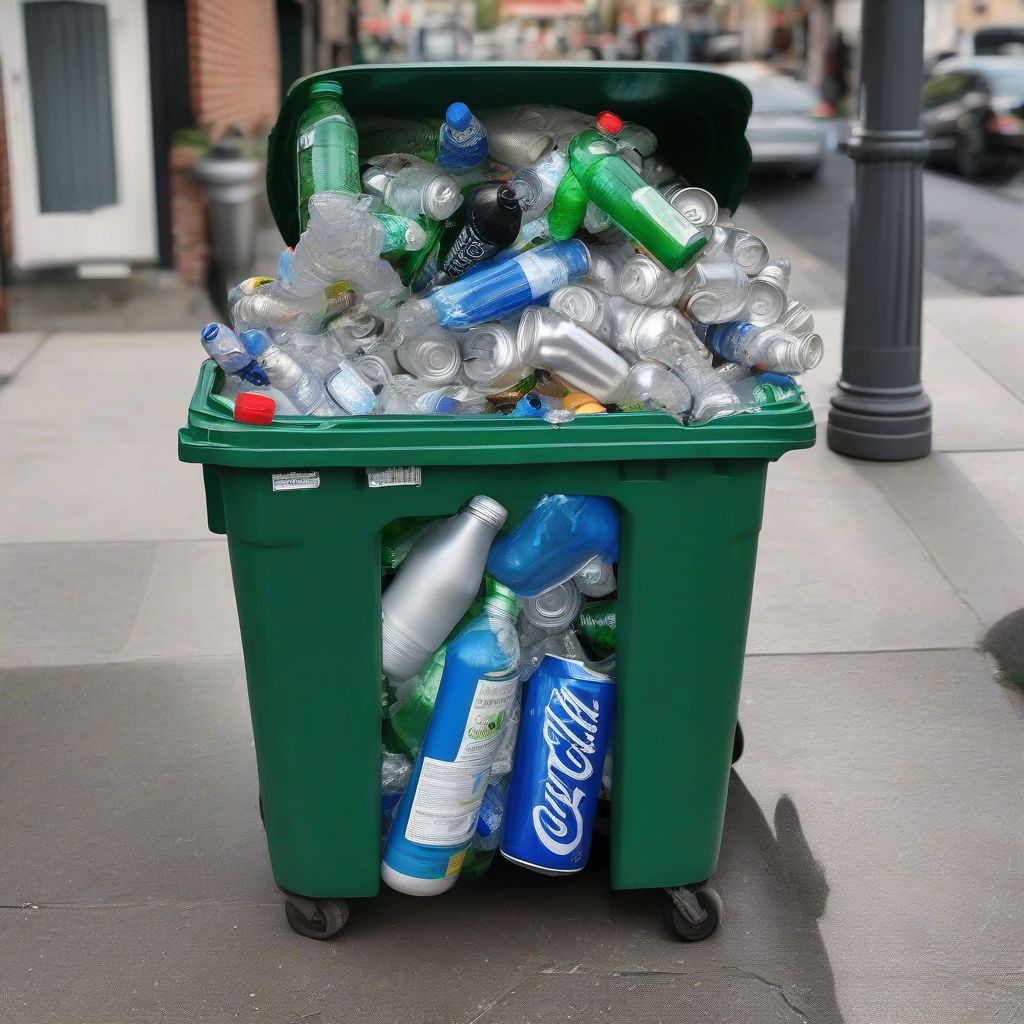Imagine this: you’re strolling through a bustling farmer’s market, canvas tote in hand, carefully selecting locally grown produce. You’re making conscious choices about the food you eat, prioritizing sustainability and ethical sourcing. Now, imagine extending that same thoughtfulness to every purchase you make. That’s the essence of ethical consumerism, and recycling and upcycling are two powerful tools in its arsenal.
What Does Ethical Consumerism Mean?
Ethical consumerism goes beyond simply buying organic or supporting local businesses. It’s a holistic approach to consumption that considers the social and environmental impact of our purchasing decisions at every stage, from production to disposal.
Key Considerations for the Ethical Consumer:
- Human rights and fair labor practices: Are workers treated fairly and paid a living wage?
- Environmental sustainability: Is the product made from renewable resources? What’s the carbon footprint of its production and transportation?
- Waste reduction: Is the packaging minimal and recyclable? Does the product have a long lifespan?
This is where recycling and upcycling take center stage.
Recycling: Closing the Loop
We all know the drill: paper goes in the blue bin, plastic in the yellow, and glass in the green. But recycling is more than just sorting trash – it’s about conserving resources and reducing our environmental impact.
The Benefits of Recycling:
- Conserves natural resources: It takes significantly less energy and resources to make products from recycled materials than from scratch.
- Reduces landfill space: Landfills are overflowing, and recycling helps divert waste from these environmentally damaging sites.
- Decreases pollution: Manufacturing products from recycled materials often generates less pollution than using virgin materials.
 Recycling Bin
Recycling Bin
[amazon bestseller=”recycling bins”]
Upcycling: From Trash to Treasure
Upcycling takes recycling one step further by transforming discarded materials into new, often higher-value products. It’s about getting creative, seeing the potential in what others might discard, and giving objects a second life.
Why Upcycling Matters:
- Reduces waste: It directly combats the throwaway culture by giving new life to old items.
- Promotes creativity and resourcefulness: It encourages us to see potential in everyday objects and find innovative ways to reuse them.
- Often supports local artisans and small businesses: Many upcycled products are handcrafted and sold through local markets or online platforms, boosting local economies.
Simple Upcycling Ideas:
- Turn old t-shirts into reusable shopping bags.
- Repurpose glass jars as food storage containers or DIY candles.
- Create a vertical garden using old pallets.
The Interplay of Recycling, Upcycling, and Ethical Consumerism
Recycling and upcycling are integral components of ethical consumerism because they empower us to take responsibility for the entire lifecycle of the products we consume. By choosing to recycle and upcycle, we actively participate in:
- Minimizing our environmental footprint.
- Conserving valuable resources for future generations.
- Supporting businesses and initiatives that prioritize sustainability.
Making Informed Choices as Consumers
As conscious consumers, we can make a difference by supporting brands that are transparent about their sourcing and manufacturing practices. Look for certifications like Fair Trade, GOTS (Global Organic Textile Standard), and the Forest Stewardship Council (FSC) label, which indicate responsible and ethical practices.
Questions to Ask Before You Buy:
- What is this product made of, and where was it sourced?
- Is the packaging recyclable or compostable?
- Does this company have a commitment to ethical labor practices and fair wages?
By asking these questions, we can use our purchasing power to support a more sustainable and equitable future.
Conclusion
Ethical consumerism isn’t about achieving perfection; it’s about making conscious choices, step by step. By embracing recycling and upcycling as core tenets of our consumption habits, we become part of a solution that extends far beyond our own homes. We cast a vote for a more sustainable and just world, one recycled can, one upcycled garment, one conscious purchase at a time.
What steps will you take today to incorporate recycling and upcycling into your life? Share your thoughts and ideas in the comments below!
